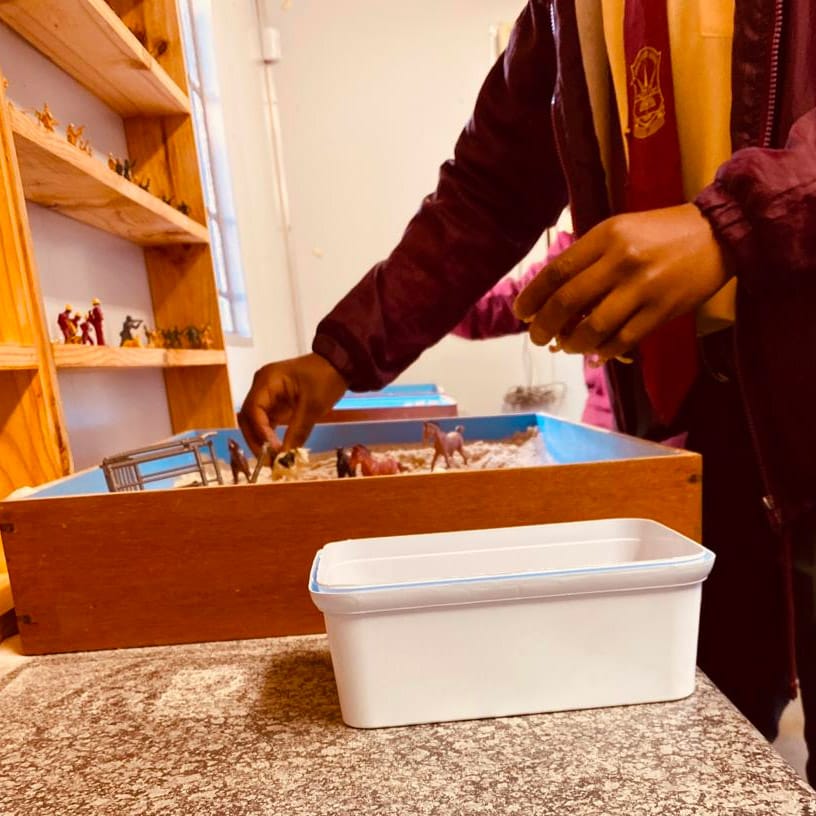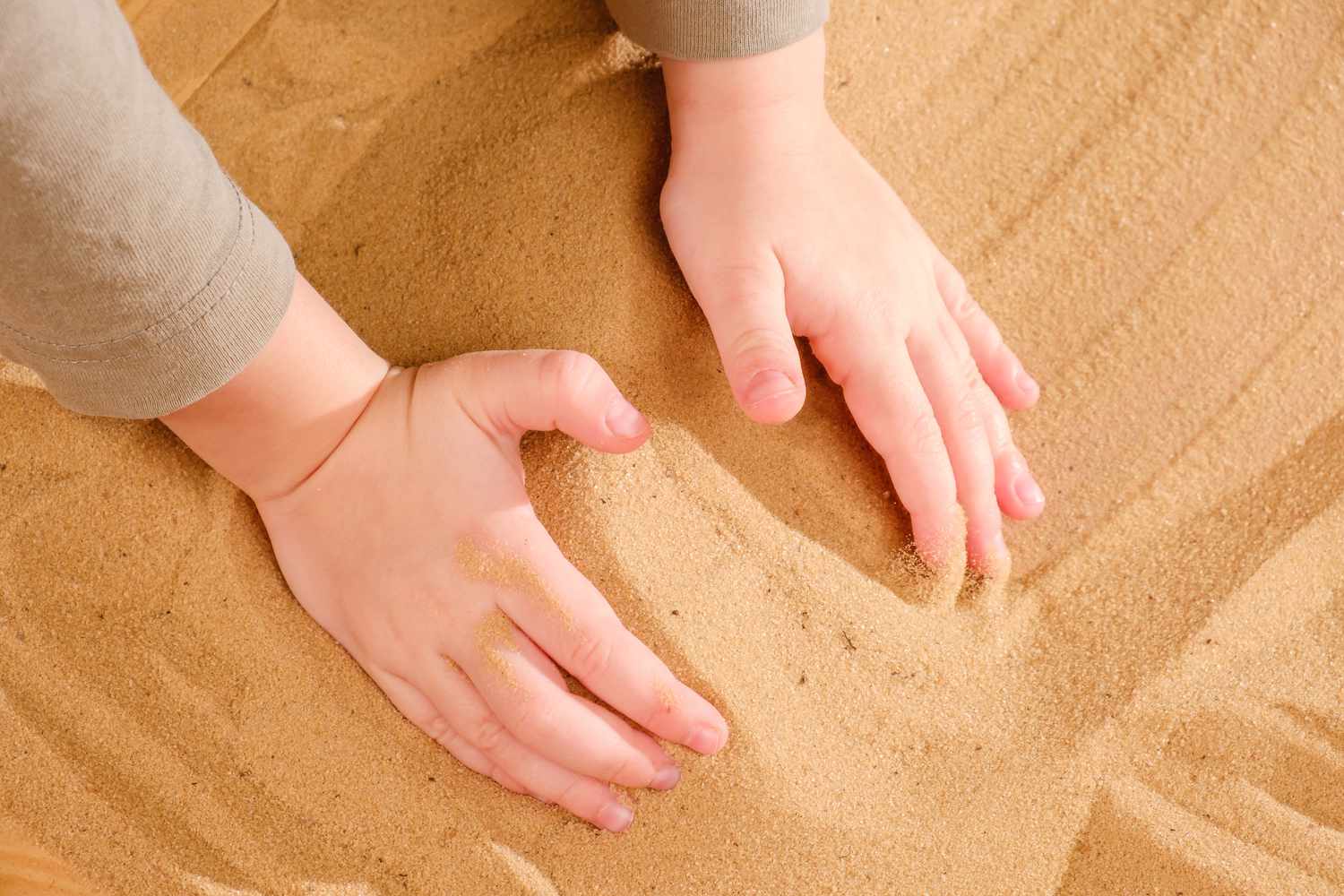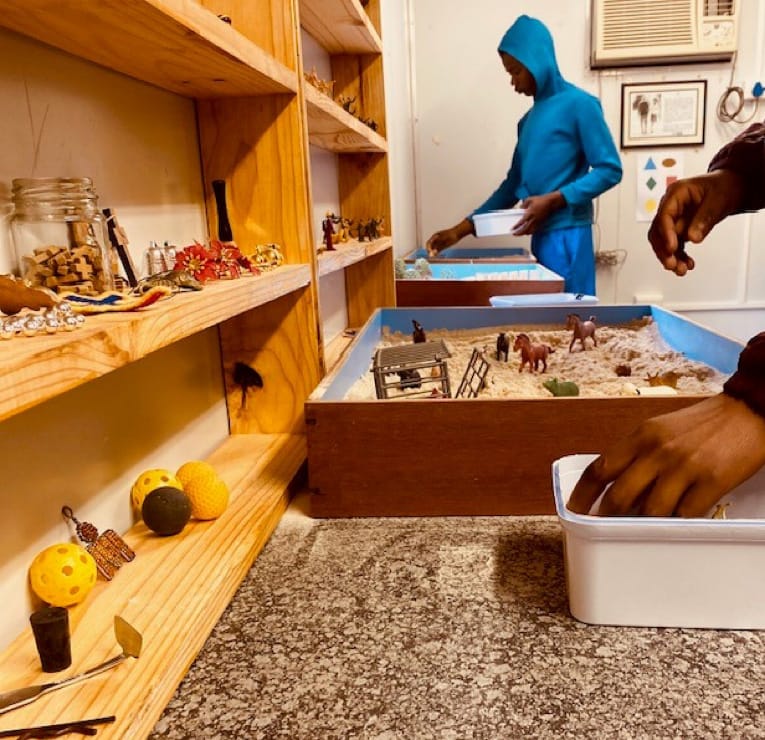An Interview with a Sandplay Facilitator: Bongekile Ngcobo
Discover Bongekile's journey as a Sandplay facilitator with Ukuthula Sandplay, offering silent therapeutic spaces for personal growth and healing.
Bongekile and I have crossed paths through our working and personal lives over the last decade or so. She’s a fellow professional I respect and admire, and one thing I love about her is she is always willing to try new things. She’s intentional about self-awareness and personal growth. Bongekile is a Sandplay facilitator with Ukuthula Sandplay, a non-profit providing Silent Group Sandplay to those who would not normally be able to access therapeutic services.*
*For an explanation of Sandplay, see the end of this article.
Let’s start at the beginning and find out more about Bongekile’s journey with Sandplay and how she ended up being a facilitator.
How did you find out about Sandplay?
I saw on Facebook or LinkedIn that they were looking for Sandplay facilitators, so I signed up for the training. I was really curious about the silence of the Sandplay experience. My background and training are around dealing with trauma and process facilitation, all of which involves talking, so I was curious about how this silence would work!
How was the training for you?
Before stepping into the training, I knew we would be playing with sand, but I pictured us rolling in a sandpit! Then, I learned we use a sandtray and not a sandpit!
In the first session, I was questioning: “Is this going to work?” I also kept thinking to myself: What do I do? Why am I doing this?
The second session, I started to just be there, and I stopped judging the space. I started to focus on myself. In this session, I began to see how this silence and space would be helpful to others.
I had a lot of expectations going into the training, and the subsequent six sessions I had with Lindi. I expected there to be an interpretation of my sandtray, but this is not how the process works. The process allows the individual to find personal meaning in their sandtray.

What has the facilitation experience been like for you?
You facilitate groups of six people at a time. I started working with teenagers first—they definitely process a lot. You can see the changes that happen over the course of the six sessions. After each session, once participants have left, the facilitator takes photos of each sandtray to keep safe for them. In the final sessions, they have the opportunity to ask questions, and you facilitate a reflection. At the end of six weeks, they can request a feedback session one-on-one with the facilitator.
Why would you recommend Sandplay as a therapeutic technique?
Each individual needs a space and silent moment to be present to themselves. A space for processing whatever comes up. Sandplay gives people space, and as you continue with sessions, it becomes more of a practice every day to be present to yourself. We live in such a fast-paced world; Sandplay helps you to slow down.
How do you see Sandplay being relevant in a South African context?
People go through a lot; there is a lot of trauma. Mental health services are very scarce and very expensive. Sandtray contributes to the service gap in communities where there are fewer resources dedicated to mental health. It provides a way for people to safely process emotions.
Could you share a story from your experience as a facilitator?
In one group, a man in his 60s got to week four of the process and commented that he always used the same miniatures in his sandtrays each week. He asked if he was maybe not creative. I told him that this is his process and that he is using what is meaningful to himself. As the six weeks finished, he commented that he enjoyed the play that Sandplay allowed him as an adult, saying that it had been a very long time since he had really played. He stated that when you stop playing, you enter into adulthood.
“It is so important to awaken our play!” – Bongekile

Information about Ukuthula Sandplay
Anyone can benefit from a Sandplay session. It is gentle and non-invasive. The individual sets their own pace and makes their own creation in the sandtray.
To find out more about Ukuthula’s work, have a look at their lovely website: https://ukuthulasandplay.com/
You can book Sandplay sessions for yourself, or for a group. Contact Lindi at info@ukuthulasandplay.com.
You can make more therapy available to those who wouldn’t normally be able to afford mental health services by making a donation to Ukuthula. There are ways to donate on the website: https://ukuthulasandplay.com/get-involved/
What is Sandplay?

Sandplay is a therapeutic technique where each participant has a sandtray (pictured below), full of sand. They have access to numerous miniatures and create a scene with their chosen miniatures in their sandtray. Ukuthula uses the Silent Group Sandplay method, with up to six participants at a time working on their sandtrays.
"Sandplay, as a non-verbal, non-invasive expressive, creative activity, is effective for internal processing, and activating and supporting emotional and psychological healing. Sandplay facilitates a sense of calmness, and increased awareness, activates a desire to play, and cooperativeness and supports integration and a sense of belonging.” – Ukuthula website.